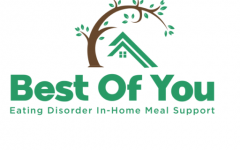Introduction
Eating disorders, while not always visibly apparent, are serious mental health conditions that can have life-threatening consequences. They aren’t a choice or a trend but grave illnesses that warrant immediate attention. In this extensive article, we’re going to delve deep into the symptoms of various eating disorders and illuminate how Best of You can aid in your journey towards recovery.
Demystifying Eating Disorders
Before we begin identifying symptoms, let’s first unravel what eating disorders are. They are complex mental health conditions that manifest as severe disturbances in individuals’ eating behaviors and relate to thoughts and feelings. Eating disorders can strike anyone, regardless of age, gender, or cultural background, and frequently coexist with other conditions such as anxiety, depression, or substance abuse.
Decoding Anorexia Nervosa: Symptoms to Look Out For
Anorexia Nervosa often distorts a person’s self-perception—they view themselves as overweight, even when severely underweight. This disorder causes individuals to obsessively monitor their weight, strictly control their food intake, and avoid certain types of food.
Physical Signs
These include severe weight loss, extreme thinness (emaciation), fatigue, insomnia, dizziness, blue discoloration of the fingers, thinning hair, dry skin, and irregular heart rhythms.
Behavioral and Emotional Signs
Anorexia can lead to behaviors such as constant dieting despite being severely underweight, obsession with body size and shape, fear of gaining weight, and social withdrawal.
Spotting Symptoms of Bulimia Nervosa
Bulimia Nervosa is characterized by repeated episodes of binge eating followed by compensatory behaviors such as forced vomiting, fasting, excessive exercise, or misuse of laxatives, diuretics, or enemas.
Physical Signs
Symptoms can include maintaining a normal weight or being overweight, tooth decay, acid reflux, chronic sore throat, swollen salivary glands, or broken blood vessels in the eyes.
Behavioral and Emotional Signs
Bulimia sufferers often exhibit behaviors such as feeling a lack of control over eating, intense fear of gaining weight, and feelings of guilt or shame about their binging and purging habits.
Identifying Binge Eating Disorder (BED) Symptoms
BED is distinct from Bulimia Nervosa, as those with BED do not regularly engage in unhealthy compensatory measures (like purging) to counteract binge-eating.
Physical Signs
Bed symptoms can include being overweight or obese, eating until uncomfortably full, eating large amounts of food when not feeling hungry, and experiencing frequent dieting without weight loss.
Behavioral and Emotional Signs
These symptoms involve eating alone or in secret due to embarrassment, feeling distressed, ashamed, or guilty about eating, and having a lack of control over the ability to stop eating.
Best of You: Your Ally in Recovery
At Best of You, we understand the courage it takes to confront an eating disorder. Our experienced and empathetic team is committed to offering personalized treatment plans to cater to your unique needs.
A Holistic Approach
We believe in a holistic approach that addresses not only the symptoms but also the root causes of eating disorders. We provide a supportive environment that promotes healing, self-growth, and recovery.
Tools for Recovery
Our resources and interventions are designed to help you regain control over your life. Through therapy, support groups, and nutritional guidance, we aim to provide comprehensive assistance on your journey to recovery.
Begin your journey towards recovery today with Best of You. You’re more than your eating disorder. Contact us now!





